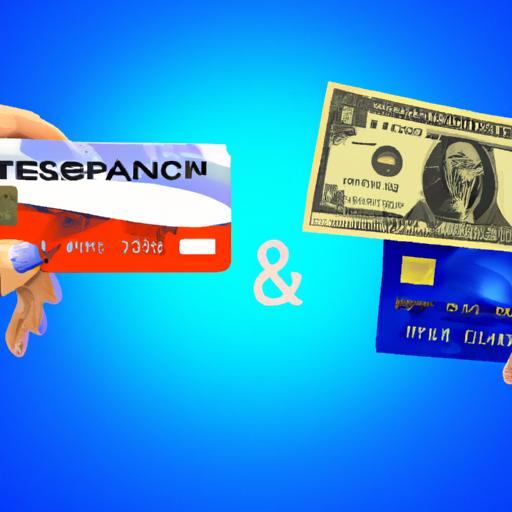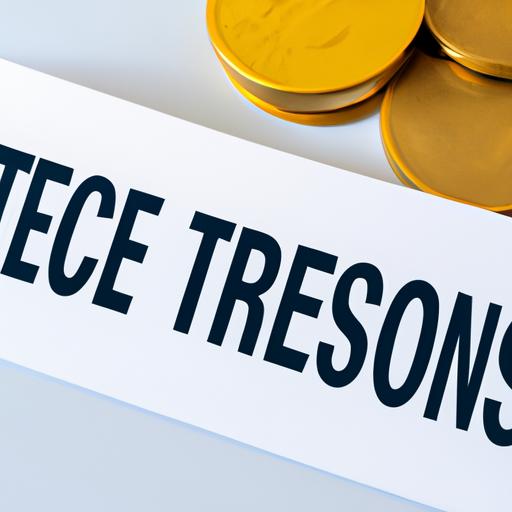Comparing Transaction Fees: Credit Cards vs. Debit Cards vs. E-Wallet
Hey, savvy spenders! We’ve all been there – standing at the register, ready to make a purchase, when the dreaded question pops up: “Credit or debit?” And now, there’s another contender in the ring – the futuristic e-wallets. But hold up, before you swipe away, have you ever wondered which payment method actually costs you the least in transaction fees? Well, grab a seat and get ready for a wild ride as we dive into the world of comparing transaction fees between credit cards, debit cards, and e-wallets. Buckle up, it’s gonna be one heck of a money-saving journey!
Transaction Fees: A Battle of Convenience and Cost-effectiveness
When it comes to making transactions, we all want convenience and cost-effectiveness. But how do different payment methods stack up against each other? Let’s compare the transaction fees of credit cards, debit cards, and e-wallets to find out.
Credit Cards
Credit cards offer the convenience of deferred payment, allowing you to make purchases now and pay for them later. However, this convenience often comes at a cost. Credit card companies charge transaction fees, which can vary based on the type of transaction and the credit card issuer. These fees can range from a fixed percentage of the transaction amount to a flat fee for each transaction. Some credit cards also have annual fees or additional charges for international transactions. While credit cards offer perks like rewards programs and buyer protection, it’s important to consider the overall cost when comparing transaction fees.
Debit Cards
Debit cards, on the other hand, provide a more cost-effective option for making transactions. Unlike credit cards, debit cards are linked directly to your bank account, so you’re using your own money rather than borrowing from a credit card issuer. As a result, transaction fees for debit cards tend to be lower or even non-existent. Some banks may charge a small fee for certain transactions, such as using an ATM outside their network or making international purchases. However, overall, debit cards offer a convenient and cost-effective way to make transactions without the worry of accumulating debt or high fees.
The Convenience Game: How Credit Cards, Debit Cards, and E-Wallets Measure Up
Comparing transaction fees is like stepping onto a virtual battlefield where credit cards, debit cards, and e-wallets are the fierce contenders. Each of them claims to be the ultimate champion of convenience, but only one can reign supreme. Let’s dive into the nitty-gritty and uncover which payment method emerges victorious when it comes to those pesky transaction fees.
Credit Cards:
- Pros: Credit cards offer a wide range of rewards and bonuses, making them a tempting choice for savvy shoppers. With features like cash back, travel rewards, and purchase protection, it’s hard to resist their charm.
- Cons: However, credit cards often come with higher transaction fees compared to other payment methods. Plus, if you’re not diligent with paying off your balance in full and on time, those interest charges can quickly add up.
Debit Cards:
- Pros: Debit cards provide the convenience of a credit card while drawing funds directly from your bank account. No need to worry about accumulating debt or interest charges. It’s spending made simple.
- Cons: On the downside, some banks may charge per-transaction fees for debit card usage, eating into your hard-earned money. In addition, the level of rewards and benefits offered by debit cards may be limited compared to their credit card counterparts.
E-Wallets:
- Pros: E-wallets, the new kid on the block, have surged in popularity thanks to their seamless mobile payment experience. They often offer lower transaction fees compared to credit and debit cards, making them an attractive choice for budget-conscious individuals.
- Cons: However, not all merchants accept e-wallets, which may limit your purchasing options. Additionally, some e-wallets may have restrictions on the amount you can store or transfer, so it’s crucial to check the fine print.
Now that we’ve examined the contenders, it’s up to you to decide which one best fits your financial needs. Whether you value rewards, simplicity, or lower fees, there’s a payment method out there ready to cater to your convenience cravings.
Diving into the Details: Understanding Transaction Fees and Hidden Costs
When it comes to making purchases, whether online or offline, understanding the transaction fees and hidden costs is crucial to managing your finances effectively. In this post, we’ll dive into the details and compare the transaction fees of credit cards, debit cards, and e-wallets. With this knowledge, you’ll be able to make informed decisions about which payment method is best for your needs.
The Battle of Transaction Fees: Credit Cards vs. Debit Cards vs. E-Wallets
Let’s start by comparing credit cards, the beloved payment method of many consumers. While credit cards offer convenience and often come with attractive rewards, there are certain transaction fees to keep in mind. These fees may include an annual fee, late payment fees, and perhaps the most notorious of all – the foreign transaction fee. If you frequently travel or make purchases from international websites, these fees can quickly add up and take a toll on your wallet. However, credit cards may offer additional perks such as extended warranties or travel insurance, so be sure to consider the entire package before making a decision.
Next up, we have debit cards – the trusty sidekick to credit cards. Debit cards are linked directly to your bank account, allowing you to spend only what you have available. With debit cards, you typically won’t encounter annual fees, but keep an eye out for overdraft fees or ATM withdrawal fees, particularly if you’re using an ATM that is out of your bank’s network. Another aspect to consider is the lack of rewards programs with most debit cards, which means you won’t earn any cashback or points on your purchases. However, for many, the peace of mind that comes with spending within their means is more than worth it.
Make the Smart Move: Recommendations for Maximized Cost Savings and Convenience
In today’s fast-paced world, making smart financial decisions has never been more important. When it comes to managing our money, we all want to maximize cost savings and convenience. That’s why it’s crucial to compare transaction fees among different payment methods like credit cards, debit cards, and e-wallets. Let’s dive deep into the world of fees and discover which option is the best fit for your financial goals.
Credit cards have long been a popular choice for their flexibility and rewards programs, but they often come with transaction fees. These fees can range from a fixed percentage of the transaction amount to a flat fee per transaction. On the other hand, debit cards offer a more direct connection to your bank account, which means fewer fees. However, keep in mind that some banks may charge a fee for using your debit card at ATMs or for certain types of transactions. Lastly, e-wallets have gained popularity in recent years for their convenience and ease of use. Most e-wallets have minimal to no transaction fees, making them a cost-effective option for everyday purchases.
To help you make an informed decision, here’s a handy table comparing the transaction fees of credit cards, debit cards, and e-wallets:
| Payment Method | Transaction Fees |
|---|---|
| Credit Cards | Varies by card issuer, typically a percentage of the transaction amount or flat fee per transaction |
| Debit Cards | May include a fee for ATMs or certain types of transactions, but generally lower than credit cards |
| E-Wallets | Minimal to no transaction fees, making them a cost-effective option |
Remember, the smart move is all about finding the balance between cost savings and convenience. By comparing the transaction fees of credit cards, debit cards, and e-wallets, you can make an informed decision that aligns with your financial needs. So, whether you’re swiping, tapping, or scanning, make sure to choose the payment method that works best for you. Your wallet will thank you!
In Retrospect
And there you have it, folks! We’ve journeyed through the world of transaction fees, exploring the battle royale between credit cards, debit cards, and the cheeky newcomer, e-wallets. It’s been one wild ride, filled with unexpected twists and turns.
We discovered that credit cards are like fancy VIP passes to the world of rewards and benefits, but they can sting you with those pesky interest charges. Debit cards, on the other hand, may be plain Janes when it comes to perks, but they won’t leave you drowning in debt either. And let’s not forget about those spiffy e-wallets, effortlessly zipping through payments with their sleek interfaces and convenience factor.
But when it comes to transaction fees, it’s a tough match to call. Credit cards might flex their muscles with higher fees, like heavyweight contenders throwing jabs, but they also offer robust protection if things go south. Debit cards may have lower fees, but they lack that extra security cushion. And e-wallets? Well, they tend to dance around with their minimal fees, but it depends on the platform.
In the end, it all boils down to your personal preferences and spending habits. Each option has its own unique flavor, tailored to suit different tastes. So, whether you’re a reward-hungry shopaholic, a budget-conscious penny-pincher, or a tech-savvy trendsetter, there’s a payment method waiting to be your perfect match.
The next time you find yourself at the checkout counter, armed with this newfound knowledge, remember to weigh the pros and cons. Consider the rewards, the fees, the security, and the convenience. And finally, make the choice that suits you best.
Now go forth, fellow money warriors, conquer the world of transactions, and remember to keep an eye out for those sneaky fees. Until next time, may your wallets be full and your fees be minimal! Stay savvy, my friends.






